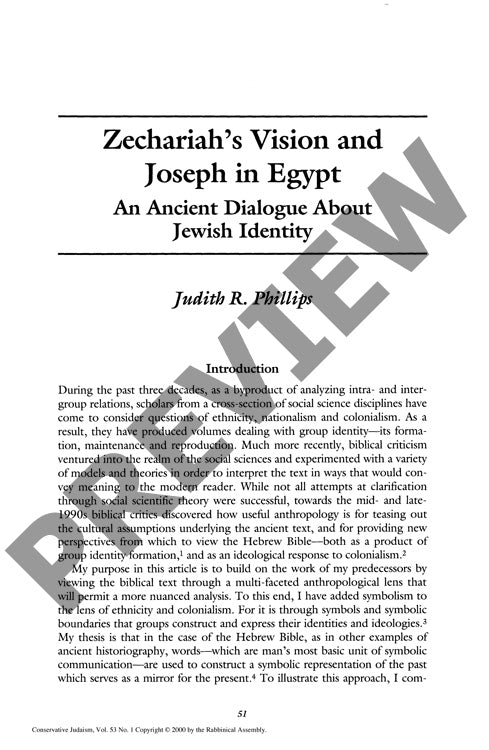Zechariahs Vision and Joseph in Egypt An
Couldn't load pickup availability
Ancient debates over Jewish identity and authenticity during the Persian period (539-330 B.C.E.) played out through a literary dialogue between two influential biblical texts: the Joseph narrative in Genesis and the visions of Zechariah. Through intertextual analysis of verbal links between these works, a stark contrast emerges in their approaches to Jewish practice under foreign rule. While Zechariah's visions advocate for a Jerusalem-centered, Temple-based definition of Judaism that marginalizes diaspora communities, the Joseph story presents a counternarrative supporting religious flexibility and legitimizing diaspora Jewish practice. The methodology combines anthropological perspectives on ethnicity, colonialism, and symbolism with close reading of shared terminology invested with competing meanings across both texts. Situated within the social-historical framework of the Second Temple Period, the analysis reveals how Joseph's narrative champions individual prayer, repentance, and cultural engagement over exclusively Temple-based worship. This ancient tension between particularistic and universalistic interpretations of Judaism continues to influence modern debates about authentic Jewish practice, assimilation, and pluralism. The research demonstrates how anthropological approaches to biblical texts can illuminate both ancient cultural assumptions and their enduring impact on contemporary Jewish identity formation.

More Information
-
Physical Description
-
Publication Information
Published 2000
ISBN
-
Publication Credits
Judith Phillips

